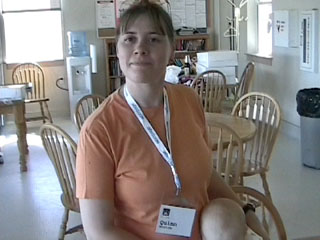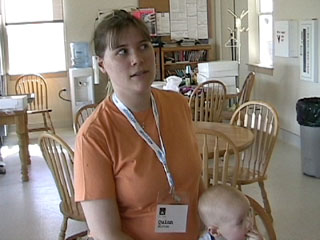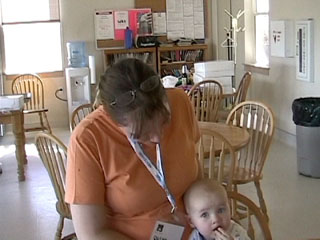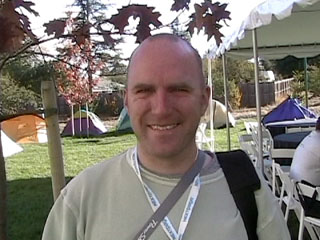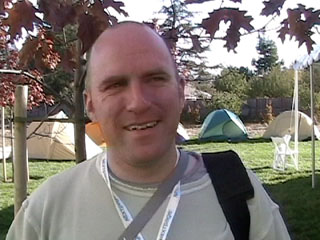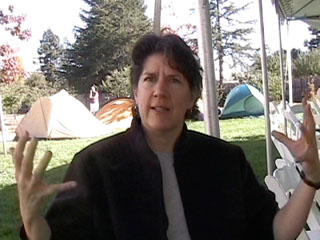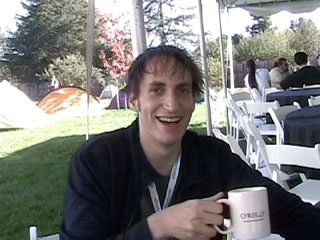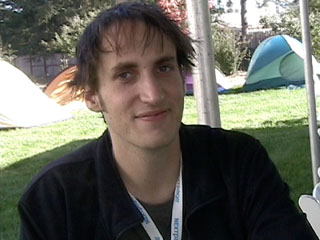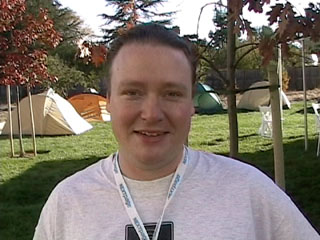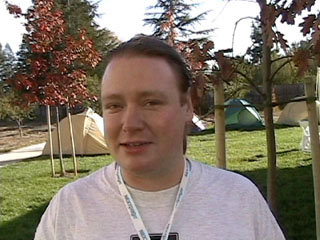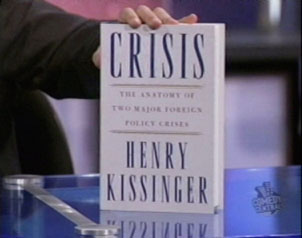This interview ran in the May 2003 issue of Japan’s
Internet Magazine. (The translation is a little choppy…)
 |
Title: XML Specialist Lisa Rein
CTO of Creative Commons who has another name as XML Queen – an interview with Lisa Rein
By Gohsuke Takama.
XML Specialist Lisa Rein is leading technical architect for Creative Commons, which Lawrence Lessig has introduced. We asked her about how she, a journalist/ musician/editor, became recognized by some as the ‘XML Queen.’ |
Q: What kind of work was that you did in the CreativeCommons project?
LR: My official title was ‘Techinical Architect.’ Basically I was the first CTO of CreativeCommons. I did basic reserach and designed architecture with development team. Larry (Lessig) already had an idea of building machine readable licenses, so my role there was to lead to accomplish (the project of) buiding XML licenses using RDF, that is based on right ideologies and is compatible and interoperable with many different systems.
Q: How did you get inerested in XML?
LR: It was in 1997. I was an editor of Netscape World magazine at that time. At a conference in April I met Chris Lilly of the W3C and asked him many questions. He happily answered me, and gave me the draft of XML standard, which was still under development. I had no idea what it was at the time, but got excited about the fact that a standard that everyone could use was getting realized.
Q: What was the situation surrounding XML?
LR: “The Web needs XML” was understood by everyone of the first XML WG, and they guided me. Tim Bray and the older generation who made HTML were very worried about the future of the web. But they also thought that if we can build a legitimate standard as quickly as possible, the web would keep going for a while.
Q: So are you self-taught in XML?
LR: No, not by myself. The whole world was a teacher to me. When I sent out questions in emails to experts all around the world for different themes, most of them replied to me with wonderful answers! I thougt that they felt happy to be asked by a person who really wants to learn that had a serious interest in the subject. Then, as I learned more about the subject more, I became more interested in getting actively involved.
Q: How did you start teaching XML?
LR: Since I was involved deeply, to spread XML to the world became my role. My teaching started in my local community college in Bellevue, WA, and then I also did consulting for corporations. But it wasn’t fun to teach students who were told to study by their bosses. Or, I should say, it sucked, and could not wait to go home every day. After that, I started teaching at UC Berkeley extension’s online seminars. In 2001, I had more teaching gigs as XML get into main stream, but several gigs were canceled in the middle of the course affected by ecconomic down turn.
Q: How did corporations and universities find you?
LR: UC Berkeley, via Craig’s List. Corporations, well, probably they searched on the web. They only wanted some big names. and around that time there were some people calling me the “XML Queen”. It was kind of like “hey everyone, here comes the queen to teach you XML” kind of thing…




